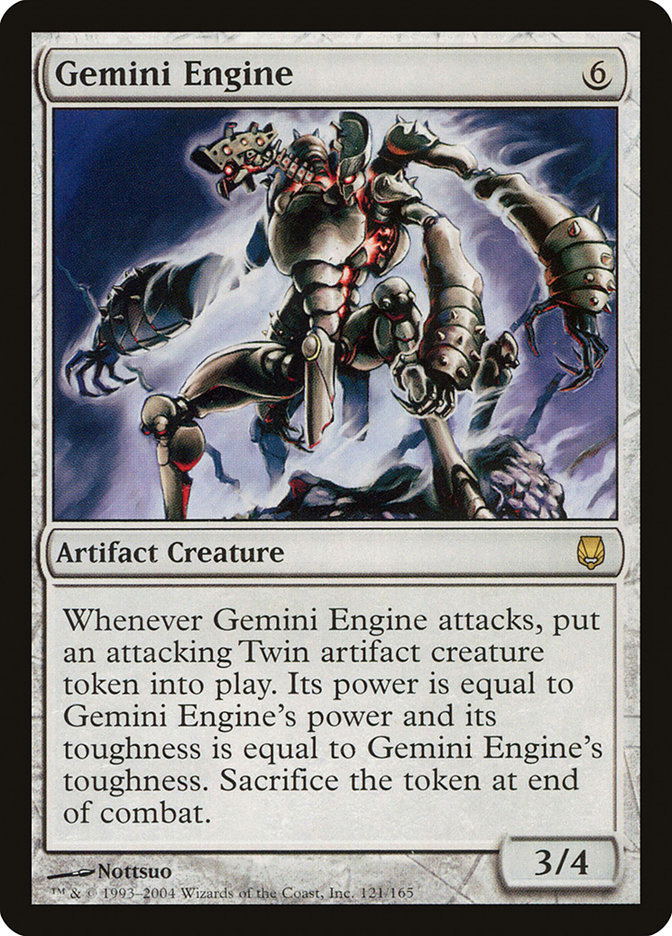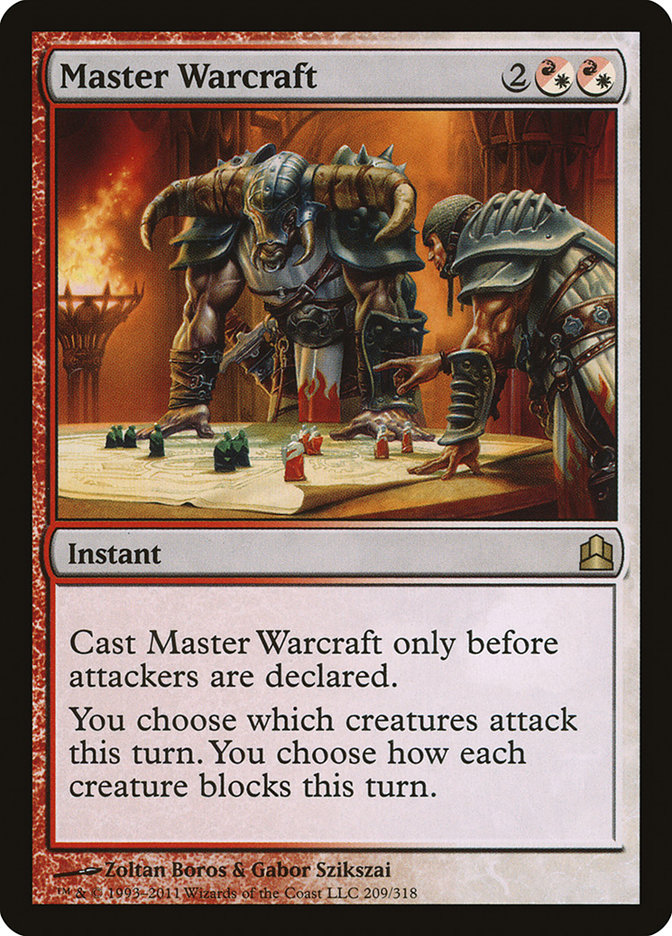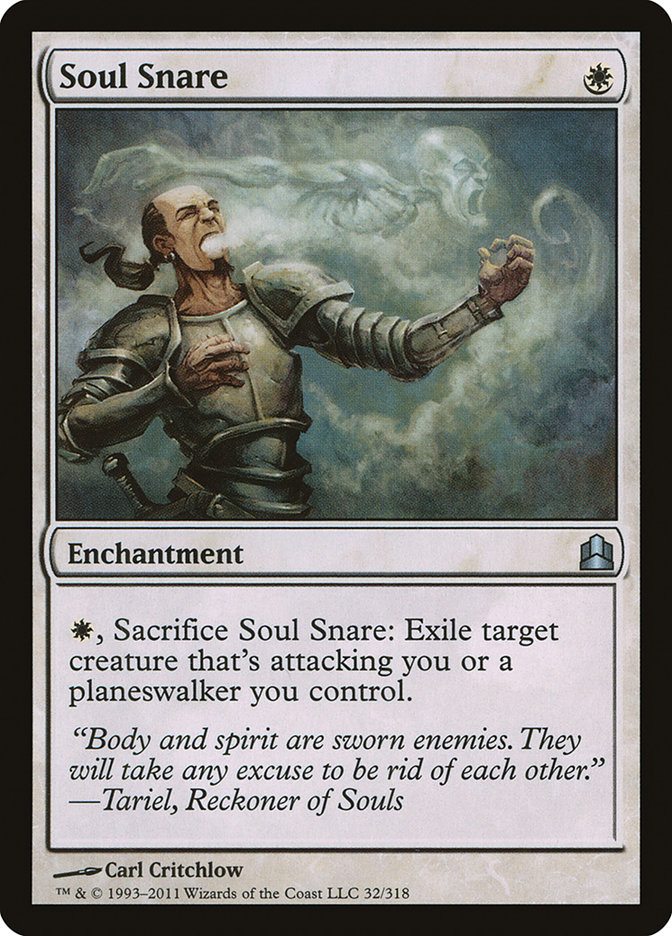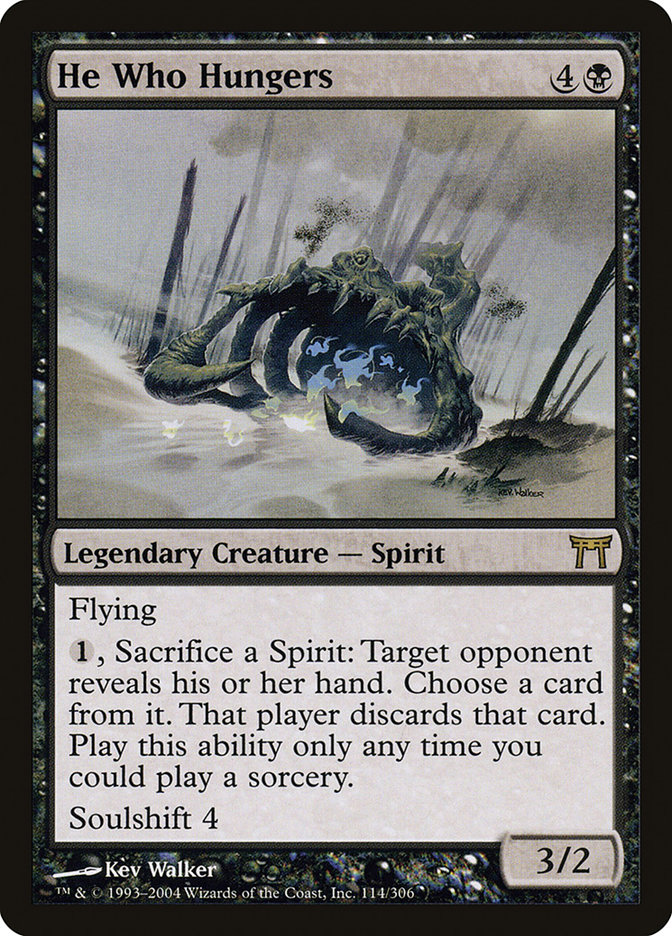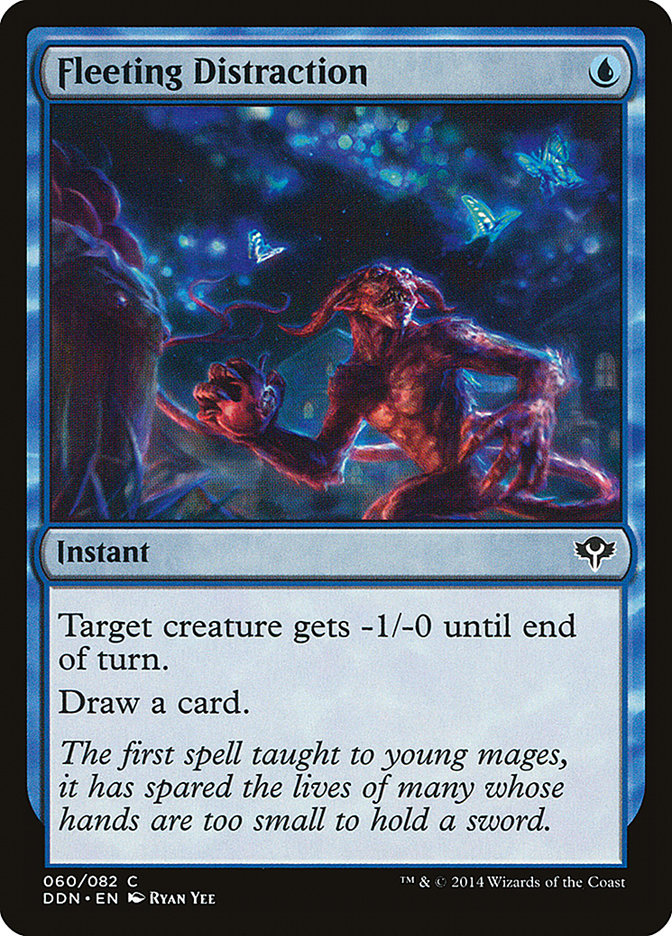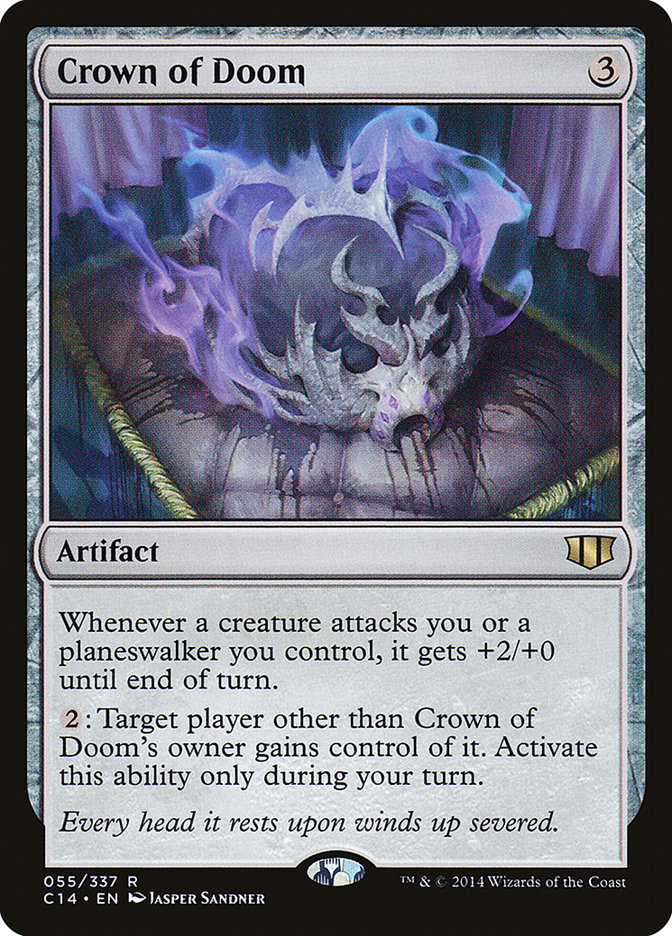Commander games go on long, but these games shouldn’t be like games of Monopoly and Risk. When games run long, you increase the chance of a players getting hungry, angry, hangry, or playing sloppily. The other problem with slow-moving games is that it reduces the amount of awesome you can have. Bruce Richards, Wizards of the Coast columnist, tweeted a link to an article at the Muse Vessel about slow play. This article is part homage and also a revisit to the topic, as slow play is a continuous issue for many multiplayer games and the nature of Commander increases the issues around slow play. Dealing with a slow-moving game is absolute torture. How do you speed up your games?
Let’s get cracking! Commander games have multiple players, which slows down everything. There are more turns and more opponents taking them. The basis for Commander games taking a long time is twofold. The first reason is the number of players. A tournament allots 50 minutes for three games in a round. Adding two more players doubles the game clock at a minimum. The increased life total also increases the game time. Rather than every player simply needing 25 minutes, the needed time is pushed a bit.
Then we have the format’s emphasis on ramp. Commander is battlecruiser Magic given a better format than Rise of the Eldrazi Limited. This means most early plays are ramp or card selection to set up. Without some early pressure, the payoff for durdling increases. But the durdling costs more time, as turns may involve cumbersome actions that require the table to wait but with no relevant change to the battlefield state.
The other problem is that eliminating a player does not end the game. The infamous kingmaker scenario rears its ugly head too often. In a kingmaker scenario, there are (most often) three players, and two or three can destroy either of the remaining players. However, no player can take out another player and survive an attack from the remaining player. Kingmaker scenarios can cause games to drag as all three players are trying to maneuver but have no real idea how to get out of the situation.
Analysis Paralysis
Before I go into breaking a kingmaker scenario, I need to talk about analysis paralysis. I first came across this idea on role-playing game forums. Dungeons and Dragons Third Edition and Fourth Edition contained many different possible options during combat. The combination of moves, powers, spells, active effects, magic items, and numerical bonuses meant that many players would become overwhelmed and slow their turn to a crawl.
They froze. There was too much information and they froze.
This happens in multiplayer Magic and Commander just as often. There are complicated battlefield states with many different potential responses to a player taking an action. This paralysis first hits during the draw phase. Here’s a tip: ignore your draw step.
Seriously.
An overwhelming majority of the time, you can plan your turn so that you can keep your game moving. But stopping to reconsider options at the start of every drawn turn is part of the reason why Ascension and Mystic Vale have the draw phase at the end of the turn. Sometimes you draw a game-winning card, but it’s pretty freaking obvious when you want to cast that over your original plan. Unless that card is practically screaming at you to cast it, you can wait a bit.
The next part of the turn that has the most analysis paralysis is combat. I can’t offer a big tip like “ignore combat” to help this the same way I can for a drawn card. Instead, there are three main areas that create a hang-up: splitting attacks, combat math, and responses in combat.
Splitting Attacks
Splitting your attacks is a jump from normal Magic play. Sometimes an attack is between a planeswalker and a player, but Commander presents greater choice. I strong advise you to attack your biggest threat in almost all situations. Splitting attacks is a secondary concern. Sometimes Elspeth, Sun’s Champion is your biggest threat; sometimes it’s Garruk, Apex Predator; sometimes it’s a little kid that you taught to play Magic and he mercilessly bashes you every turn until you die. If you have the extra resources to devote to attacking multiple threats, the best two options are sending the majority at the bigger threat or sending the majority where they have the greatest impact.
Attacking your biggest threat for a bunch of damage is usually good. But sometimes you need to consider impact. The token player who will chump everything and take no damage? Probably not the right time to try to boop that player with a small horde. Her token horde is larger. Rather than attack her, you can attack where the most impact will happen. This can be damage, creatures destroyed, triggers, or something else. It will depend on your deck and your opponents’ decks.
Combat Math
The next hurdle is the combat math. Math is not scary; you just need to slow down a bit. I frequently organize my attackers into smaller clusters of five power. This helps me quickly add up the damage.
Dice are your friends! You can use dice to track a storm count, floated mana, and pumped effects. SCG Live uses large “Goyf dice” for tracking Tarmogoyf; in a casual setting you can easily do something similar. Put a spindown die next to the Voltron commander to track power more easily. Use a die to signal what Multani, Maro-Sorcerer or Kagemaro, First to Suffer are at. Use a piece of paper to track all the bonuses for a creature whose layers are more complicated than Shrek.
Equipment adds to this. Not every pump spell is a Collective Blessing, but having multiple pieces of equipment attached to a creature can certainly complicate cleanly tracking your creatures. Again, I recommend you use a sorting method for your battlefield that aids your tracking or use dice to express all the relevant numbers if the creature is modified. This is something that MTGO handles well; the creatures automatically adjust with new bonuses and penalties.
Responses to Combat
The last part of combat paralysis is the potential responss. The easiest responses to note and work around are on-battlefield effects like Avatar of Woe, Soul Snare, or Viashino Heretic. The simplest method to avoid running into on-battlefield effects is to borrow a chess play. In chess, many players use a rule of not being able to take a move back once they have let go of the piece. The classic response to moving a bishop is to keep a finger on the top of the piece as you finalize that none of your opponent’s pieces can capture your bishop.
You can utilize the same idea. If the battlefield is complicated, you could arrange attackers, pause to verify you are not about to run into an on-battlefield effect, and then announce your action. However, you should be doing this type of battlefield scanning during your opponents’ turns. This way you can act decisively on your own turn.
If you do fail to notice something and run headlong into an effect, I recommend you not take back the action. Yes, it is disheartening to lose your commander to a trick you should have seen, but taking it back to go somewhere else does not improve your skill in the same way that being punished for a mistake will. I had a friend in college who would say, “Do you know how you develop tight play? By playing tight all the time.” Skipping an opportunity to reinforce a learning moment because it is uncomfortable does not help you learn more.
On the other side of the combat tricks spectrum are the myriad combat tricks we can cast from our hands. Unfortunately, I do not have great advice for this. In a Limited format, it is encouraged to study the common and uncommon combat tricks before studying the rare tricks. You are much more likely to see the common tricks. Commander works in a similar way. Try to pay attention to the removal or other tricks being used. If you track life totals on a pad, you have a note-taking device at your fingertips. The best advice is to study your group and the removal they most often use. Then you can work around it as best you can.
The other option is the Silence effect. Dragonlord Dromoka, Grand Abolisher, City of Solitude, and a few other effects remove the option for your opponents to play combat tricks during your turn. Other cards like Defense Grid can make it much more difficult to leave open enough mana for your opponents to use combat tricks against you.
Focus
Figuring out combat is tricky and causes issues. Losing focus causes issues all the time during a game. The most obvious statement is to pay attention to the game. You should be respectful enough of your opponents to pay attention to the game you’re playing. But that seems too obvious.
The most often causes of losing focus I’ve seen are food, distractions, and poor timing with stories. Food is easy to handle. Snack before a game. If you have not eaten breakfast, arrived a game store at 10 am, and played until 4 pm, you are far more likely to play sloppily as the day progresses. Don’t wait until you are ravenous and your opponents looks like drumsticks; this is not a cartoon. Eat, and try to eat well. Taking an hour break to have lunch with your friends is well worth it, and even better, you can keep playing solid games after eating.
The next cause of loss of focus is the extra distractions we bring. The biggest ones I see are music and videos on a phone. Having an earbud in while playing a game makes you less likely to hear what your opponents are saying. I don’t mind repeating myself occasionally to keep the game state clear, but repeating yourself to clarify is not the same as repeating because someone else wasn’t paying attention.
Put away the headphones and do not have videos running on your phone during the game. If you are going to play a video, pause the whole game. I find movies and TV in the background are also too distracting. It is really easy to have your eye catch the movie, you start watching it, and then you don’t hear the turn being passed. We don’t want turns that last the length of sitcom episodes.
If you want background noise (I’m not saying you should play in silence), I recommend something that has fewer lyrics. Jazz, classical music, EDM, trance, bachata, deep techno, and many other genres can be played to provide a good tune for chair-dancing when it isn’t your turn. Even better (for some groups) is to play standing so you can dance to your heart’s content while still paying attention to the game.
And finally we get to the issue of telling stories. My first recommendation is to not tell stories during a game. But I know that won’t happen. If you are going to tell a story, then do so when it is not your turn. Holding up the game as you try to Woodland Bellower Eternal Witness to get back Krosan Grip and target a Sword of War and Peace while explaining your story most likely means both the turn and the story suffer…and the rest of the table is wondering how much longer you can drone on before announcing your Eternal Witness trigger. Humans do not multitask well, Commander already spreads the cognitive load around. Focus and do one thing well at a time.
Surviving Kingmaker
The last reason I find games go long is a kingmaker scenario. Each player can eliminate only one other player. The remaining player would then capitalize on this and win the game. You can do one of two things: give the win to another player or wait. Giving the win to another player is simple: you make a lethal attack and then get wiped out. Sure, you didn’t win, but now you can go grab coffee or gyros, shuffle up again, run to the bathroom, or re-pod for new games.
If you chose to wait, you must wait with a plan. The three best plans are to attrition the table out, find a blowout card, or play to an out. Attrition is simple: find a way to grind advantage. The card Attrition does this. Meren of Clan Nel Toth does this all alone. But any way you can exchange resources with your opponents in a scenario where you will emerge victorious is solid. This can even utilize cards that are most often considered jank, like Azure Mage. The other attrition path is the durdle plan. Churn and churn and churn until you can make a move.
Blowouts are the easiest method of getting out of a kingmaker scenario. If all of your creatures are indestructible, Wrath of God is really good. The big dumb cards that our format is known for work too: Insurrection, Cyclonic Rift, Eldrazi, whatever. You can also be a little more cunning and use forgotten cards like Aetherize or Illusionist’s Gambit to make a lethal attack but still have protection. Even a silly little Fog in this case can turn the game in your favor.
The last option is to play to an out. This happens a lot in tournaments. A player gets into an unwinnable scenario, but there is a glimmer of hope. “If I just draw this one card!” This isn’t Yu-Gi-Oh! and we don’t have the heart of the cards, so we need to play to maximize the value of whatever that out is. If a sweeper is the only thing that gets you out of the scenario, then you want to get your opponents to contribute more to the battlefield so they cannot recover before you win. If you pressure your opponents to respond to you and you draw the card you need, it will be absolutely devastating to them. If you don’t draw the card, you lose. But you are going to lose anyway, and playing so that you have a chance is much better than just rolling over and accepting defeat.
Clocking Out
Slow play will still eat up time; anyone who has been to large event knows that the 50-minute rounds are much closer to an hour and a half. But doing what you can for yourself and to teach your group will limit the times when slow play creeps up. Sometimes a player will need two minutes to work through a complicated battlefield state. But if someone is checking every graveyard, life total, and hand size before casting a turn 4 Explosive Vegetation, it might not be the wrong call to eliminate someone who wastes that much time.
What do you find causes the biggest issues with slow play? How do you get out of the kingmaker scenario?




